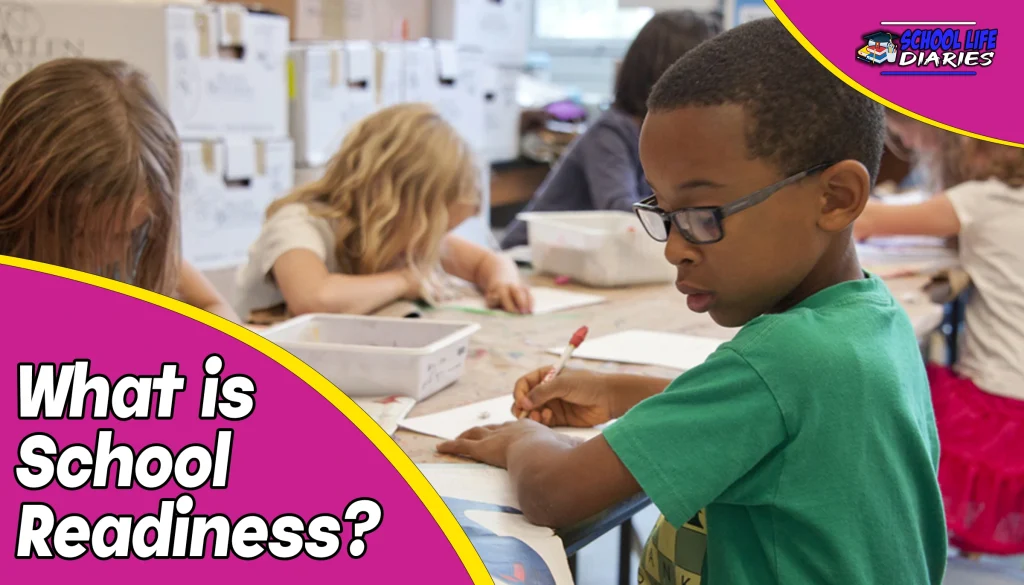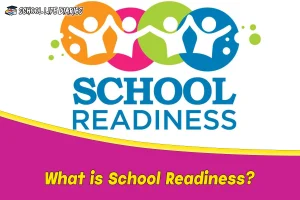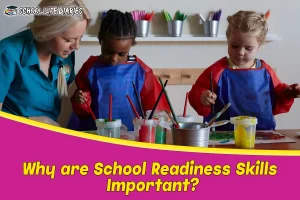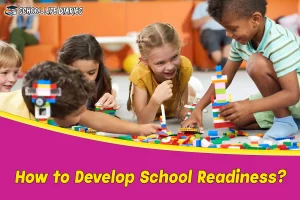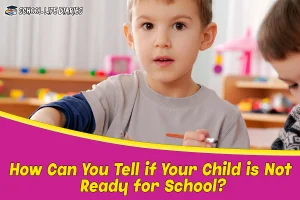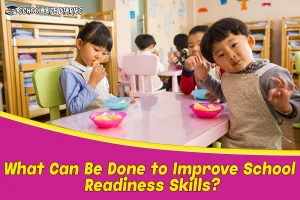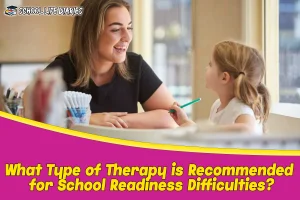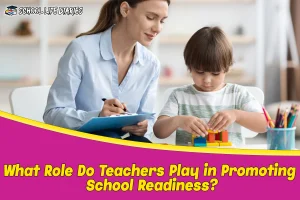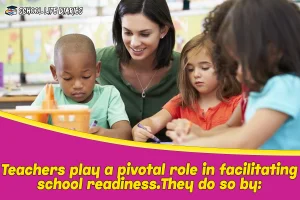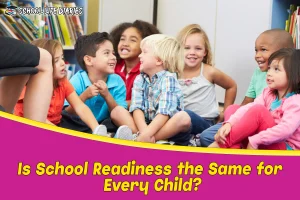Entering school is a significant milestone in a child’s life, one that marks the beginning of their educational journey. What is School School readiness, a term frequently discussed in early childhood education, plays a pivotal role in ensuring that children are prepared to embark on this journey successfully. In this article, we explore the concept of school readiness, its importance, how to develop these crucial skills, signs that a child may not be ready for school, strategies to improve readiness, the role of therapy, the impact of teachers, and the individualized nature of school readiness.
What is School Readiness?
School readiness is a multifaceted concept encompassing a child’s physical, cognitive, social, and emotional preparedness to engage in formal education. It reflects a child’s ability to meet the expectations and demands of school, paving the way for a smooth transition into the educational system.
Why are School Readiness Skills Important?
School readiness skills are of paramount importance because they set the stage for a child’s academic and social development. Here’s why these skills matter:
- Academic Success: Children who enter school with solid readiness skills are better equipped to learn and succeed academically from the start.
- Social Integration: Readiness skills enable children to interact effectively with peers and teachers, fostering positive social relationships.
- Self-Confidence: Preparedness for school boosts a child’s self-esteem and confidence, setting a positive tone for their educational journey.
- Reducing Stress: Readiness skills reduce the stress and anxiety often associated with starting school, making the transition smoother.
How to Develop School Readiness?
Preparing a child for school readiness involves a holistic approach. Here are some essential aspects to consider:
- Early Literacy: Encourage reading and storytelling to develop language skills and a love for books.
- Numeracy Skills: Introduce basic numeracy concepts through play and everyday activities.
- Fine Motor Skills: Activities such as drawing, coloring, and playing with building blocks enhance fine motor skills.
- Social Skills: Promote social interaction through playdates and group activities to develop cooperation and communication.
- Emotional Regulation: Teach children to express their feelings and manage emotions in a healthy way.
- Independence: Encourage self-help skills like dressing, eating, and using the restroom independently.
How Can You Tell if Your Child is Not Ready for School?
It’s important to remember that every child develops at their own pace, and these signs should not necessarily cause alarm. They can provide guidance, recommend interventions if necessary, and offer strategies to help your child become better prepared for their educational journey.
Remember that every child is unique, and with the right support and attention to their individual needs, they can develop the skills and confidence needed to thrive in school and beyond. Recognizing signs of unreadiness is crucial for timely intervention. As parents, it’s natural to be concerned about our child’s readiness for school. Starting school is a significant milestone in their lives, and ensuring that they are well-prepared is essential for their success and well-being. Here are some signs to look for if you’re wondering whether your child may not be quite ready for school:
- Communication Challenges: Difficulty in expressing thoughts or understanding instructions.
- Poor Social Skills: Struggling to interact with peers, share, or take turns.
- Limited Attention Span: An inability to focus or stay engaged in age-appropriate activities.
- Emotional Issues: Frequent meltdowns, anxiety, or excessive shyness.
- Fine Motor Skill Delays: Difficulty with tasks like holding a pencil or using scissors.
- Lack of Independence: An overreliance on adults for basic tasks.
What Can Be Done to Improve School Readiness Skills?
Addressing readiness challenges involves a collaborative effort between parents, caregivers, and educators. Here are some strategies:
- Early Intervention: Identify concerns early and seek support from professionals such as pediatricians or early childhood educators.
- Structured Play: Engage in activities that promote learning while having fun, such as puzzles and educational games.
- Consistent Routine: Establish a daily routine that includes reading, learning activities, and social interaction.
- *Positive Reinforcement: Praise and encourage your child’s efforts and achievements to boost confidence.
- Professional Guidance: Consult with specialists or therapists if needed for tailored interventions.
What Type of Therapy is Recommended for School Readiness Difficulties?
When addressing school readiness difficulties in children, the type of therapy recommended can vary depending on the specific challenges the child is facing. Speech and language therapy is often suggested for children with communication issues, as it helps enhance language skills and expression. Occupational therapy focuses on fine motor skills, hand-eye coordination, and sensory processing, which can be beneficial for those struggling with tasks like writing or using scissors.
Behavioral therapy can assist in managing behavioral issues, reducing anxiety, and improving social skills. Play therapy uses play as a medium to address emotional and behavioral concerns in a child-friendly and non-threatening way. The choice of therapy should be tailored to the child’s specific needs, and a consultation with a healthcare professional can help determine the most suitable approach.
Therapeutic interventions can be highly beneficial for children facing school readiness challenges. These therapies may include:
- Speech and Language Therapy: Addresses communication difficulties and enhances language skills.
- Occupational Therapy: Focuses on fine motor skills, hand-eye coordination, and sensory processing.
- Behavioral Therapy: Helps manage behavioral issues, reduce anxiety, and improve social skills.
- Play Therapy: Uses play as a medium to address emotional and behavioral concerns.
- Counseling: Provides emotional support and strategies for coping with stress and anxiety.
What Role Do Teachers Play in Promoting School Readiness?
Teachers play a crucial role in promoting school readiness in young children. They serve as the bridge between home and the formal educational environment, helping children develop the necessary skills and attitudes for success in school. Teachers assess each child’s individual readiness level, tailoring instruction to meet their unique needs.
They create a nurturing and inclusive classroom environment that encourages exploration, curiosity, and social interaction. By facilitating structured learning experiences and providing opportunities for teamwork, sharing, and effective communication, teachers help children develop essential academic and social skills. In essence, teachers are not just educators but also mentors and guides who play a fundamental role in preparing children for their educational journey.
Teachers play a pivotal role in facilitating school readiness. They do so by:
- Assessment: Identifying individual readiness levels and tailoring instruction accordingly.
- Creating a Nurturing Environment: Fostering a classroom atmosphere that encourages exploration, curiosity, and social interaction.
- Social Skill Development: Promoting teamwork, sharing, and effective communication among students.
- Structured Learning: Providing age-appropriate lessons that build foundational skills.
- Communication: Maintaining open channels of communication with parents to address concerns and track progress.
Is School Readiness the Same for Every Child?
School readiness is not a one-size-fits-all concept. It varies from child to child, taking into account their unique abilities, experiences, and developmental stages. Some children may excel in certain areas of readiness while needing additional support in others. Recognizing and respecting these individual differences is essential for fostering each child’s optimal development.
Conclusion: School Readiness
School readiness is a multifaceted concept that goes beyond academic skills. It encompasses a child’s cognitive, social, emotional, and physical preparedness for formal education. Recognizing its importance and taking a proactive approach to developing these skills can significantly impact a child’s educational journey. Early intervention, collaboration among parents, caregivers, and educators, and the use of therapeutic interventions when necessary can ensure that every child has the opportunity to thrive as they embark on their educational adventure.

